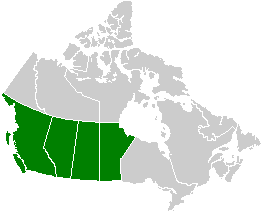The 43rd Canadian national election came to a close last night with the Liberal Party in the clear lead for seats in Parliament, leaving them in a strong negotiating position as a minority government. This leaves the NDP and Bloc Quebecois both with the potential to negotiate their way into the Canadian government. However, the Bloc will likely refuse to form part of the government due to a traditional opposition to accepting any federal authority in Quebec. As a result, the NDP are the only option the Liberals have left to form a government with.
The Liberals will have to accept some form of negotiations with the NDP. These negotiations could result in a split cabinet between the two parties, or certain NDP policy positions being adopted.
The Conservatives are left with official opposition party status, with a strong presence in Western Canada. The Conservatives swept through Alberta and Saskatchewan, leaving the Liberals with no seats in either province. Television pundits during the live election coverage argued whether this will lead to a potential Western secession movement, already dubbed “Wexit.”

The possibility of such a movement is conceptually flawed, being based on the premise that the four Western provinces of British Columbia, Alberta, Saskatchewan, and Manitoba would attempt to secede from Canada due to a lack of representation in parliament. In reality, this movement is a reaction to economic concerns in Alberta about getting their oil to new markets via pipelines.
However, all talk of Western secession fails to take into account that both BC and Manitoba have elected Liberal and NDP members to government. This provides these provinces with representation in government.
Alberta’s desire to get a pipeline to Canada’s western shores is the only reason those in favour of a Western separation include BC in their misguided endeavour. If they pushed for a Western separation that doesn’t include BC, Alberta would then have even less authority to attempt to demand its pipeline is built to the BC coast.
The ridiculous idea of a Western separation is the manifestation of some Albertans’ frustration with having to endure another four-year Liberal government; it’s the political equivalent to having a temper tantrum.
The ridiculous nature of their complaint can be viewed through the lens of the nine-year period of Stephen Harper’s Conservative government. During this period, the NDP ridings in Quebec and rural Ontario didn’t attempt to secede from Canada out of frustration to their loss. They joined in the process of Canadian democracy, and honoured the results of the election by granting legitimacy to the government, despite their disagreements.
